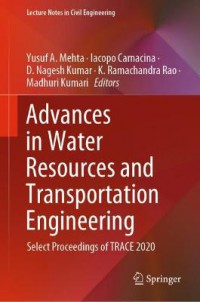Nature-Oriented Paradigms for Urban Water Security: Perspective on Framework, Scale, and Sector

Water security in urban areas is threatened by a multitude of direct and indirect drivers. On the one hand, the demand for water is increasing on a daily basis as the urban population and lifestyle needs increase; on the other hand, events such as floods, tropical cyclones, and other natural hazards result in disruption of water provisioning systems and processes. Additionally, climate change impacts such as heat waves and sea-level rise affect the sustainability of water supplies in urban areas. Conventionally, hard engineering structures and strategies have been implemented around the world to address water needs in urban areas and solutions that are often costly and intrusive to the natural environment. Nature-based solutions (NBS) in the past years emerged as a framework for exploring the potential of soft engineering solutions—as an alternative for managing urban planning, building climate resilience, and sustaining water needs of the urban communities. In this chapter, the following points are explained: (a) review of selected nature-oriented conceptual framings and practical options that apply to urban water systems, (b) illustration of existing NBS practices such as permeable pavements, green roofs, and bioretention ponds in urban landscape architecture planning, and (c) future of urban landscapes with comparative context of traditional versus nature-based water management practices. The conclusion draws attention to the UN Decade on Ecosystem Restoration (2021–2030) that is aiming to prevent, halt, and reverse the degradation of ecosystems globally. The aim is to present a synthesis that can steer integrated development planning while addressing basic water needs, climate resilience, and ecosystems protection in all settings and particularly in urban landscapes.
